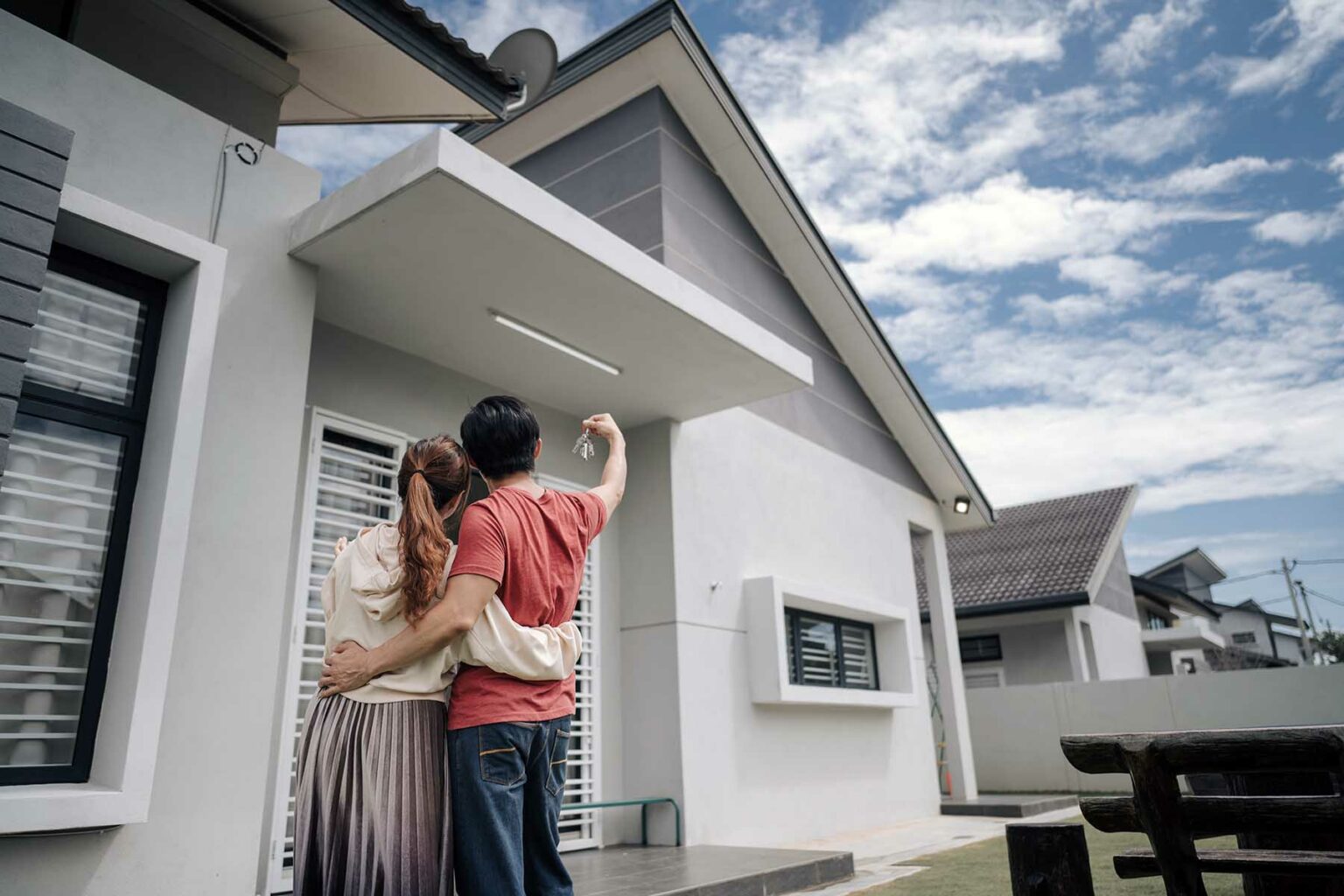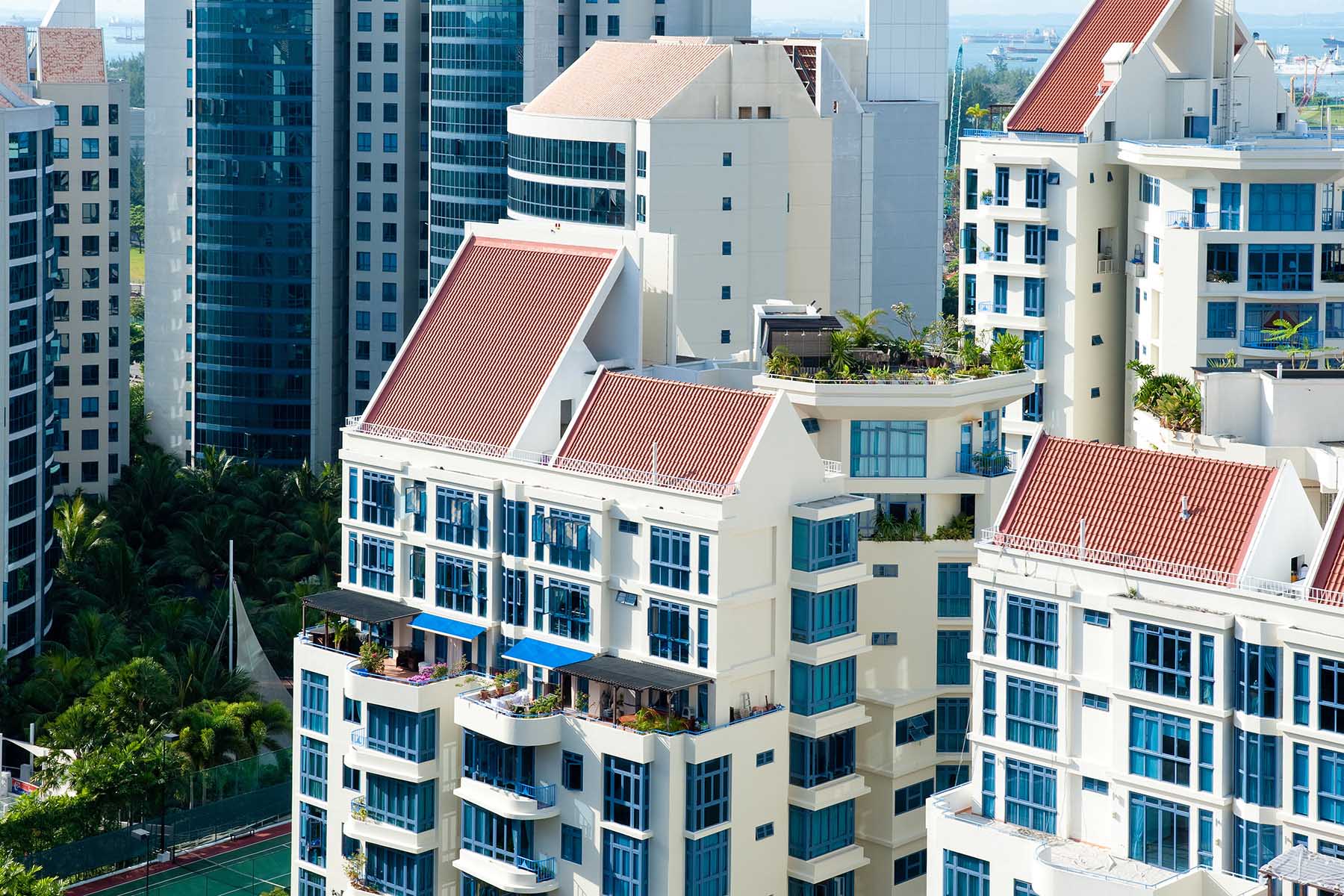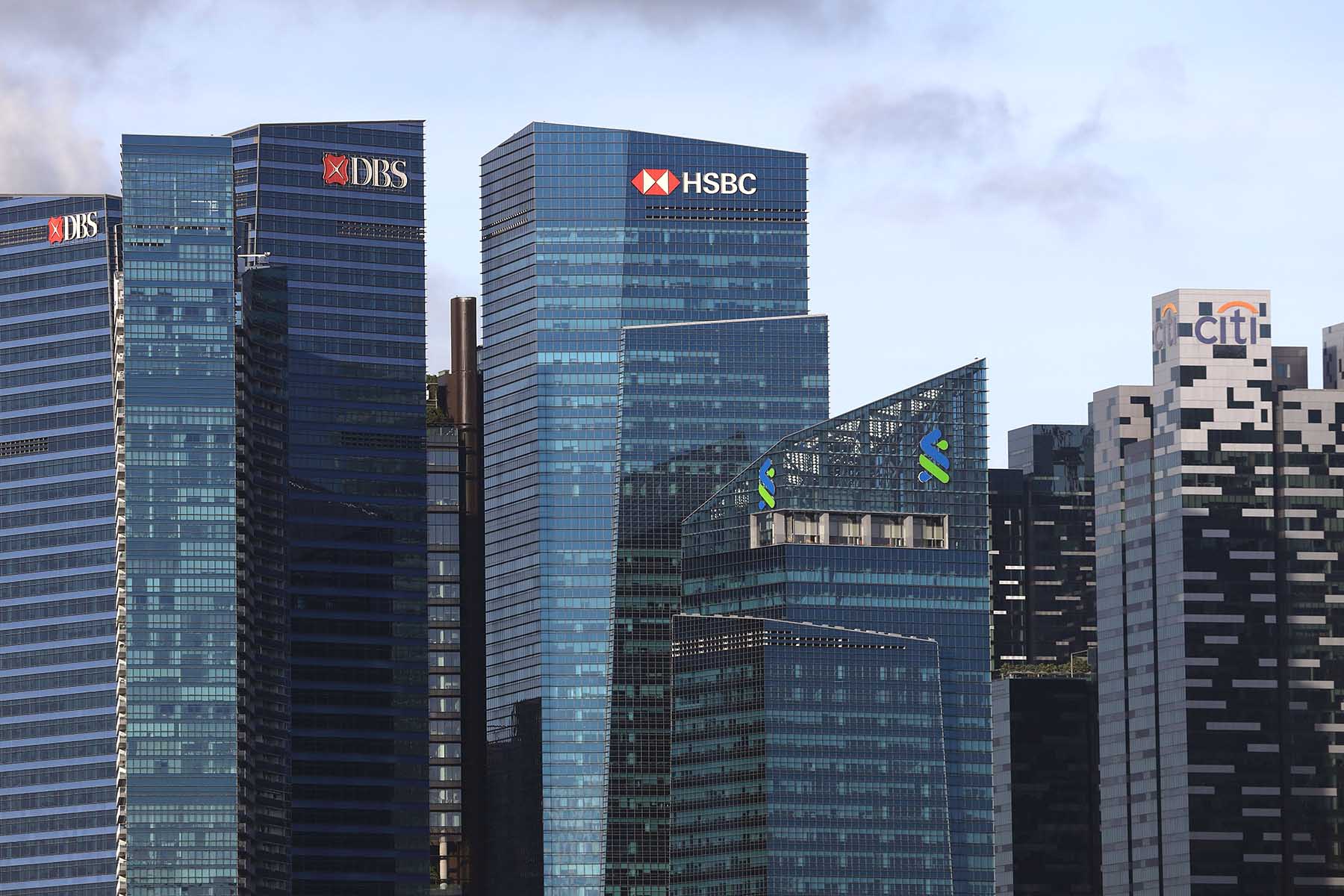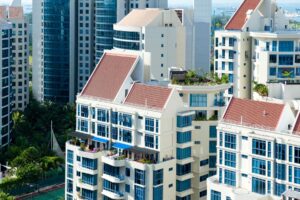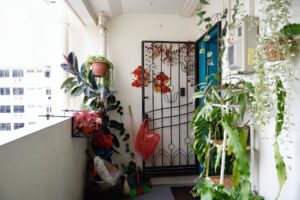Whether you’ve just arrived or have been in Singapore for years, you might be ready to stop renting and settle down more permanently. If you’re not buying a property with cash, that likely means taking out a mortgage.
While home loans are generally available to foreigners, expats often face stricter conditions – such as higher interest rates or limits on the type of property they can buy.
Here’s what you need to know about the topic:
- Mortgage loans in Singapore
- Can you get a mortgage in Singapore as a foreigner?
- Mortgage loan rates in Singapore in 2025
- How much can you borrow for a mortgage?
- Singapore mortgage calculator
- Common types of Singaporean mortgages
- Mortgage loans for other purposes
- Can you get a green mortgage in Singapore?
- How do you apply for a mortgage in Singapore?
- Help getting a mortgage loan in Singapore
- Other mortgage costs and fees in Singapore
- Taxes and tax relief on mortgages
- Is property insurance mandatory in Singapore?
- Mortgage repayments in Singapore
- Refinancing a Singaporean mortgage loan
- Useful resources
Wise
Buying property abroad is a big step and involves important financial decisions. Wise, an international money transfer company, provides specialist support to help you navigate large international transfers and save on exchange fees. Fill out Wise’s online form today to find out how they can assist you.
Mortgage loans in Singapore
Homeownership in Singapore is impressively high. As of 2024, around 90.8% of resident households owned their homes. This is largely due to the Housing & Development Board (HDB), which offers subsidized public housing and more accessible mortgage terms than commercial banks. Today, HDB flats make up 77.4% of all owned properties in the country.
However, most expats aren’t eligible for HDB housing and must rely on private home loans through banks.

Can you get a mortgage in Singapore as a foreigner?
While mortgage loans are legally available to foreigners, expats often face stricter conditions. These can include:
- Higher interest rates
- Lower Loan-to-Value (LTV) ratios
- Larger required down payments
- Limits on property types (e.g., landed homes may be off-limits to non-citizens)
To improve your chances of securing a favorable loan as an expat, it helps if you:
- Have permanent residency in Singapore
- Have a Singapore bank account
- Have minimal existing debt and a solid income
- Maintain a good local credit history
Foreigners are also subject to a hefty 60% Additional Buyer’s Stamp Duty (ABSD) unless exempt under Free Trade Agreements (e.g., U.S., Iceland, Liechtenstein, Norway, or Switzerland).

Finally, each bank sets its own eligibility criteria, which usually include:
- Age limits
- Income and employment checks
- Credit assessment
- Minimum down payment thresholds
Age limits
The minimum age qualification for a home loan in Singapore is 21 years. Banks use 65 years as the age cap for loan repayment. Older age applicants will have to negotiate a shorter LTV and larger deposit to be eligible. It is worth noting that HDB loans have their own criteria, including shorter loan tenures.
Income and employment checks
Having a stable income and employment history is a major advantage when applying for a home loan in Singapore. Lenders typically require proof of income through documents such as pay slips, tax returns, and Central Provident Fund (CPF) contribution statements.
Self-employed workers and freelancers face additional hurdles, as their income is classified as variable and therefore subject to a 30% haircut. This means lenders will discount 30% of their declared income when calculating the Total Debt Servicing Ratio (TDSR) – a key metric used to assess mortgage eligibility.
For example, if a self-employed person reports a monthly income of S$5,000, the bank will only recognize S$3,500 for TDSR purposes. Additionally, banks typically assess self-employed income based on average earnings from the past one to two years, making consistent financial documentation essential.
Credit assessment
Credit is rated by the Credit Bureau Singapore (CBS). A good credit rating in your home country doesn’t necessarily translate over to Singapore, so you will need to obtain a healthy local credit rating.
You can improve your score and gain access to favorable mortgage rates by ensuring that you pay local credit card bills on time.

Minimum down payment thresholds
While Singapore citizens can use their CPF savings to contribute to a home down payment, foreigners cannot. This essentially means that you must have at least 25% of the property value in cash, and possibly more, depending on your LTV.
Mortgage loan rates in Singapore in 2025
Mortgage rates in Singapore have eased after peaking in 2022. As of February 2025, average rates hover around 2.5–2.75%, down from over 4% two years prior.
Most banks now use the Singapore Overnight Rate Average (SORA) to calculate floating rates, gradually replacing the older SIBOR system. You’ll likely be offered either one- or three-month SORA packages, which adjust monthly or quarterly.
Note: Banks rarely offer rates below SORA, even with excellent credit. You can track interest rate trends using the Monetary Authority of Singapore’s SORA calculator.
How much can you borrow for a mortgage?
Foreign buyers – including expats – can only purchase private property in Singapore, which is subject to stricter lending rules:
- Loan-to-Value (LTV): Capped at 75%, meaning you must cover at least 25% of the purchase price as a down payment.
- Banks may offer less than 75%, depending on your age, income, credit score, or the property’s condition and lease length.
- Mortgage Servicing Ratio (MSR): Monthly repayments cannot exceed 30% of your gross income. This is a government-mandated cap.
- Loan tenure: Can extend up to 35 years, depending on your profile.
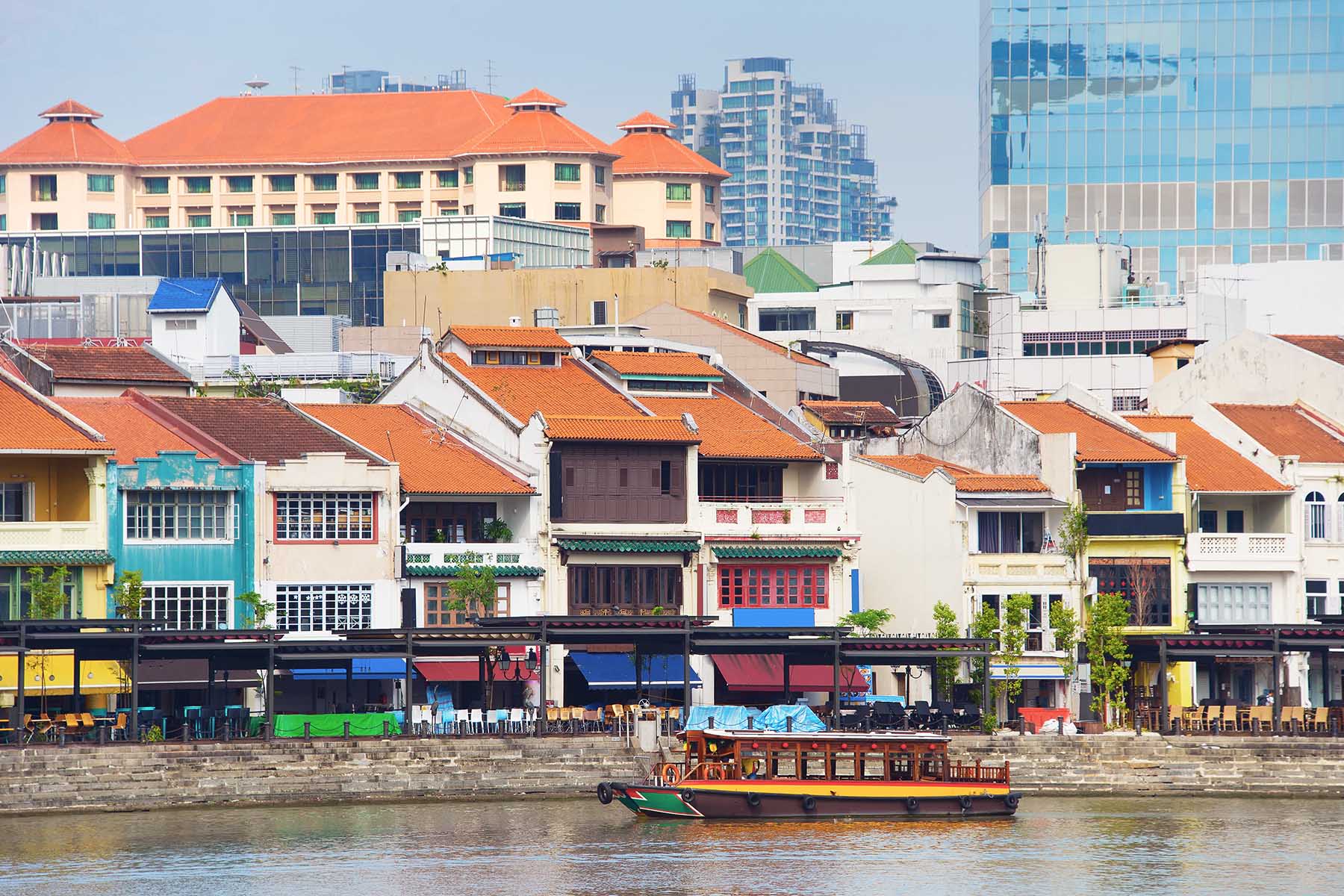
Singapore mortgage calculator
You can use one of these mortgage calculators to estimate how much you can borrow in Singapore:
Common types of Singaporean mortgages
There are two main types of mortgages available in Singapore: fixed and variable. Below is an overview of how they work.
Fixed-rate mortgage
A fixed-rate mortgage in Singapore offers an interest rate that remains the same during its initial lock-in period. This usually lasts between two and five years. After this, the interest will automatically revert to a variable rate unless you re-fix it.
Buyers benefit from certainty with a fixed-rate home loan as it is particularly useful when interest rates are rising. As such, you will know exactly what you are expected to pay to ease your budgeting.
Variable-rate mortgage
Often called a floating-rate loan in Singapore, variable interest rates are linked with the market. If interest rates fall, so does your monthly mortgage payment. However, if interest rates rise, you will be paying more every month.

A variable rate typically starts cheaper than a fixed-rate package, but its volatility gives you less certainty. Markets can be unpredictable, so you could opt for a shorter lock-in period if you believe rates are due to fall in the near future.
Hybrid mortgage
Some banks offer hybrid, two-in-one mortgages. These split your loan into two parts that can be customized. Part one will be at a fixed rate, while part two is variable.
Mortgage loans for other purposes
Singapore banks offer loans for non-residential purposes, including:
- Commercial mortgages: For the purchase of business properties. Banks see commercial mortgages as a higher risk, so the LTV will be lower. The loan tenure also tends to be shorter.
- Rental mortgages: For individuals or investors purchasing properties to rent out. It is worth noting that foreign landlords are limited to Singapore’s private property market. This is because HDB units come with strict minimum occupation periods.
- Renovation loan: For home improvement projects. Many banks implement eco-aware loans with more favorable interest rates to promote energy-efficient improvements.
- Second home mortgage: For purchasing a second or holiday home. If you are still paying off your first property loan, the LTV ratio for a second property is capped at 45%. You will also have to take the ABSD into account, as second homes are subject to an additional 20% stamp duty.
Can you get a green mortgage in Singapore?
The Singapore Green Plan 2030 is pushing for a sustainable future. This initiative is affecting the energy specifications of new properties to meet Green Mark certification.
Partner banks, including UOB, Standard Chartered Bank, HSBC, Maybank, and OCBC, all offer lower mortgage rates and rebates when you purchase a sustainable home. Your bank may require a specific Green Mark grading, such as Gold or Gold Plus, to qualify.
Luckily, similar schemes exist that aren’t limited to new properties. You can also upgrade your living conditions to achieve a greener certification. Those looking to improve their home’s energy efficiency can apply for a green renovation loan. Notably, some loaners have also extended these schemes for eco-care car and home loans.
How do you apply for a mortgage in Singapore?
The first step in applying for a home loan in Singapore is to get an In-Principle Approval (IPA) from a bank. This preliminary assessment checks your creditworthiness and gives you a clear idea of how much you can borrow—helping you make more informed property decisions. An IPA is usually processed within a few working days and strengthens your position when making an offer.
Once you’ve chosen a property, the bank will carry out a property valuation to confirm how much it’s willing to lend based on the home’s market value. If all goes well, you can proceed with the full mortgage application.
Through a bank
Most major Singapore banks offer mortgages to expats, including:
- Bank of China
- CIMB
- Citibank
- DBS
- Hong Leong Finance
- HSBC
- Maybank
- OCBC
- RHB
- Standard Chartered
- UOB
Through a mortgage broker
Brokers can help you compare rates and navigate eligibility requirements. Some popular brokers in Singapore include:
Help getting a mortgage loan in Singapore
There are numerous government schemes to help people buy a home in Singapore. However, these are restricted to Singapore citizens and include:
- CPF Housing Grant: This scheme for low-income first-time buyers offers a housing subsidy of up to S$80,000 on the purchase of a resale HDB home
- Enhanced CPF Housing Grant (EHG): This scheme for families buying their first home offers a grant of up to S$120,000
- Home Protection Scheme (HPS): This mortgage-reducing insurance protects you and your loved ones from losing an HDB apartment in the event of death, illness, or disability
- Proximity Housing Grant: This scheme offers a grant of up to S$30,000 for couples or families moving in or closer to their parents/child
- Silver Housing Bonus (SHB): This is a scheme for elderly residents selling their old properties for a smaller, re-sale apartment. They can also sell the tail-end of their lease back to the HDB.
Other mortgage costs and fees in Singapore
When buying property in Singapore, it’s important to budget for additional costs beyond the purchase price and loan amount. Common fees include:
- Agent commissions: Typically paid by the buyer for private property purchases (up to 1% of the purchase price).
- Application fees: Applicable for HDB properties and certain bank loan applications.
- Caveat registration fee: A legal document lodged with the Singapore Land Authority to protect your ownership interest (usually ~S$64.45).
- Down payment: Varies based on the Loan-to-Value (LTV) ratio; foreigners often need to put down at least 25–40%.
- Option fee: Paid to secure the Option to Purchase (OTP); typically 1% of the purchase price.
- Property valuation fee: Charged by the bank to assess the market value of the property.
- Solicitor/legal fees: For conveyancing services and loan documentation.
- Stamp duties: Includes Buyer’s Stamp Duty (BSD) and Additional Buyer’s Stamp Duty (ABSD)—the latter is 60% for most foreign buyers.
- Survey fee: May apply, especially for landed properties or older buildings.
Additionally, your mortgage will incur interest charges, which often make up a significant portion of your monthly repayment—especially in the early years. You can reduce the overall interest paid by:
- Making a larger down payment
- Choosing shorter loan tenures
- Refinancing when better rates are available
Taxes and tax relief on mortgages
In Singapore, you pay property tax based on your home’s annual value. The Inland Revenue Authority of Singapore (IRAS) is responsible for this valuation.
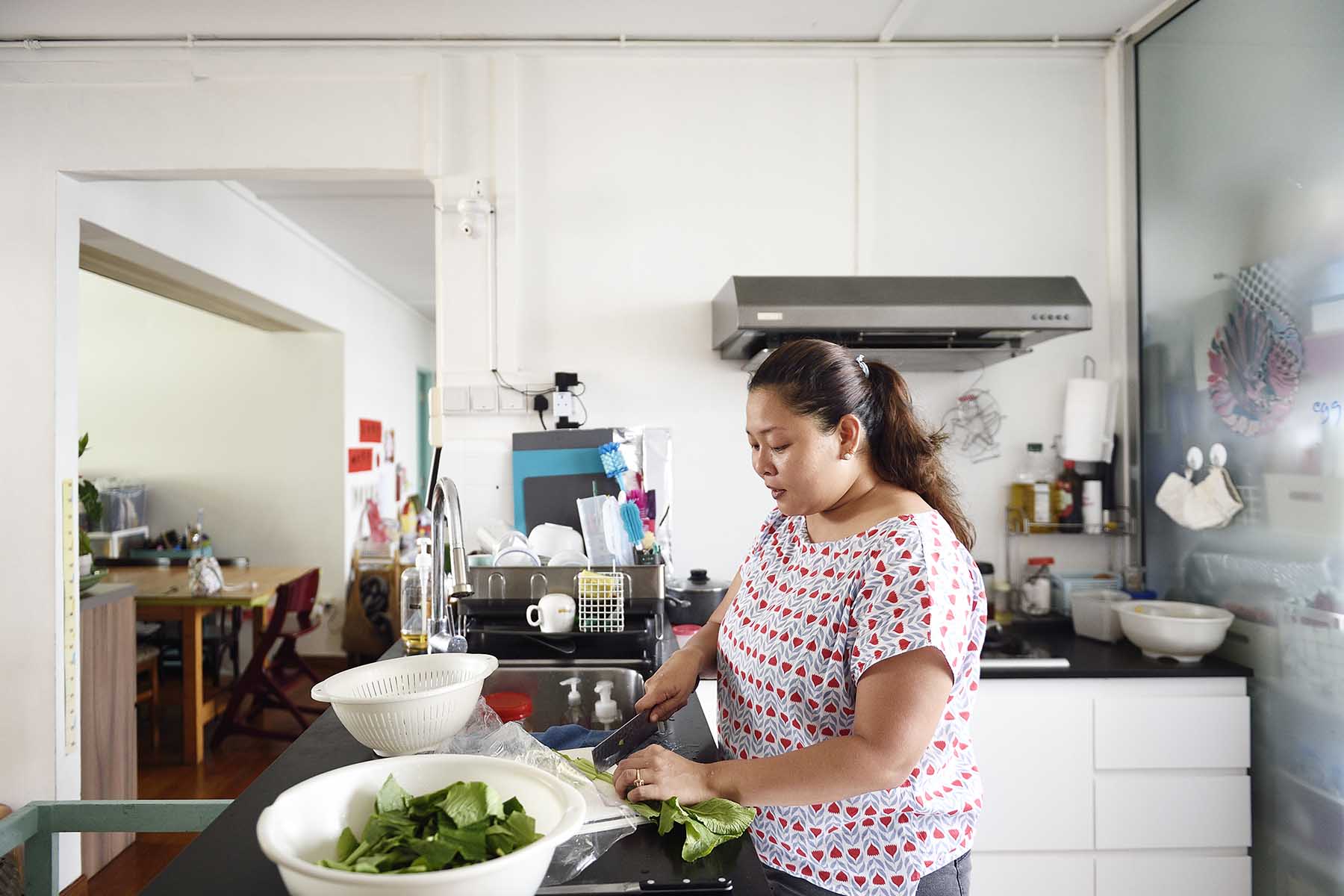
Thankfully, all owner-occupied residential properties are eligible for a Property Tax Rebate. Homes that are not occupied by their owner are taxed on a progressive scale.
There is no capital gains tax in Singapore. As such, no income tax is due on properties unless income is derived from it, such as a rental property.
Is property insurance mandatory in Singapore?
Fire insurance is mandatory on all HDB properties in Singapore. Private apartments and condominiums are usually covered by their Management Corporation (MC) but landed property owners should organize their own fire insurance coverage, although it is not mandatory.
Contents insurance is also not compulsory, however, it does provide peace of mind when it comes to protecting your possessions.
While there are no other legal requirements for home insurance in Singapore, your lender may require that you purchase Mortgage Reducing Term Assurance (MRTA) or other additional coverage. MRTA will cover your mortgage repayments in the event of illness, death, or disability.
Mortgage repayments in Singapore
Your mortgage payments will arrive at the same time each month. You may also be able to make overpayments to clear your debt or pay off your mortgage in full. However, most banks will charge a penalty to compensate for this lost interest. This can range from 0.75% to 1.50%.

If you are having trouble with your mortgage repayments, you can contact your lender to discuss support. For instance, you may be able to refinance your mortgage for lower monthly payments or extend your loan tenure.
Refinancing a Singaporean mortgage loan
Refinancing involves switching your existing mortgage to another bank. It can be a sensible option to get a lower interest rate, reduce your loan tenure, or free up some equity.
It is worth noting that you cannot refinance a bank loan with an HDB loan, but you can refinance your HDB loan with another financial institute.
You can calculate any costs and fees involved with refinancing by using a mortgage tool from PropertyGuru or MoneySmart. It is also advisable to speak to a financial expert first to discuss the benefits of refinancing.
Useful resources
- PropertyGuru – a leading property, mortgage, and agent portal in Singapore
- Housing & Development Board (HDB) – a government-subsidized scheme for Singapore citizens or couples consisting of one Singapore citizen and one permanent resident
- Urban Redevelopment Authority (URA) – the latest property data from Singapore’s Urban Redevelopment Authority
